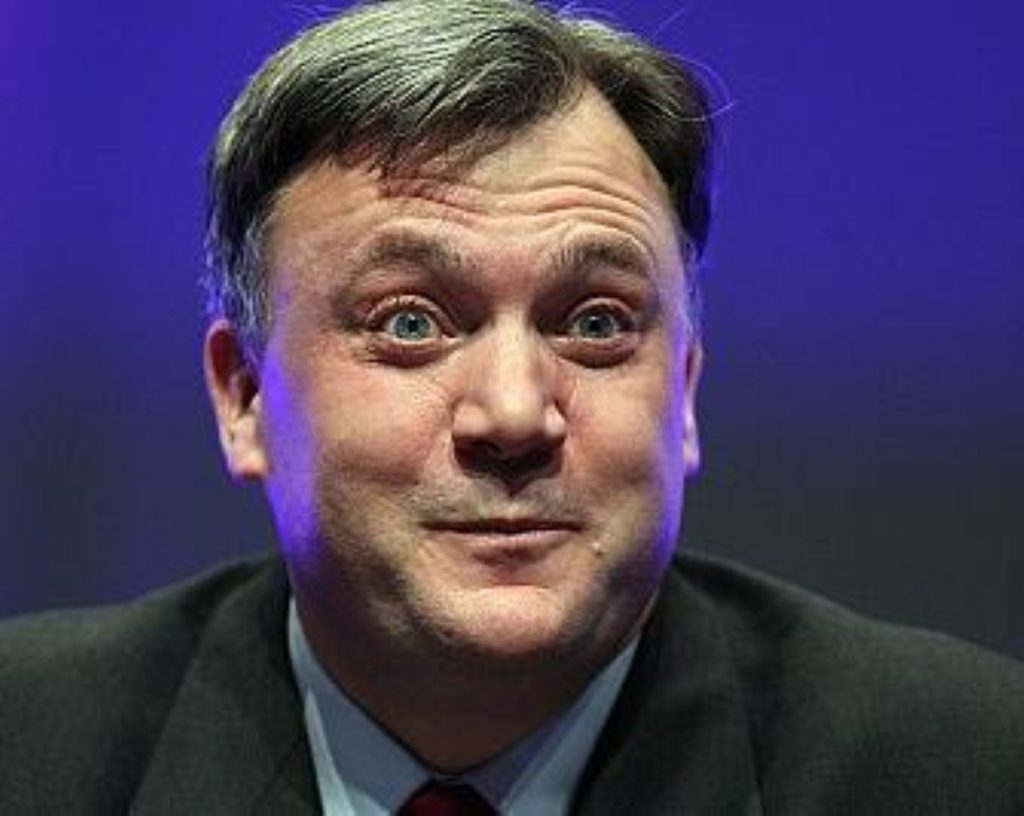Slowly but surely, Balls adapts to economic growth
Ed Balls started to respond to improved economic figures today, as Labour manoeuvred itself into a new position on austerity ahead of its party conference.
The shadow chancellor has long relied on stagnant or downward growth for Labour's central message of austerity's failure, but with a modest improvement in the nation's finances he used a Guardian article to outline the start of a new position.
"At last economic growth is returning – not just in America, but now in the eurozone and Britain too," he wrote.
"The stalled recovery finally resuming is welcome news.


"Predictably David Cameron and George Osborne now claim their economic policy has worked after all. But that won't wash. Two quarters of positive growth does not begin to repair the damage from three years of flatlining.
"After three years of stagnation, any growth is better than no growth. But the country is crying out for real change – not more of the same."
Balls used the piece to outline three key Labour demands on the economy: the bringing forward of £10 billion of infrastructure investment, a long term sustainable growth plan and extra help for average and lower earners.
The proposals are part of an effort by Labour to focus back on the 'squeezed middle' message they adopted before news emerged of a double-dip recession.
With even modest economic improvement Labour will be forced to try and turn the poll into a 'cost of living' election. Political observers expect Balls to flesh out that vision during his address to the Labour party conference in Brighton later this month.
The was evidence of an improvement in service sector growth today, although no corresponding growth in employment.
The Guardian piece also sees Balls praise new Bank of England governor Mark Carney, who is celebrated for his "forward-looking leadership".
Balls will be hoping for coded criticism of government policy from Carney, whose predecessor Mervyn King was outspoken in his objections to Labour party economic policy in the two years running up to the 2010 election.









